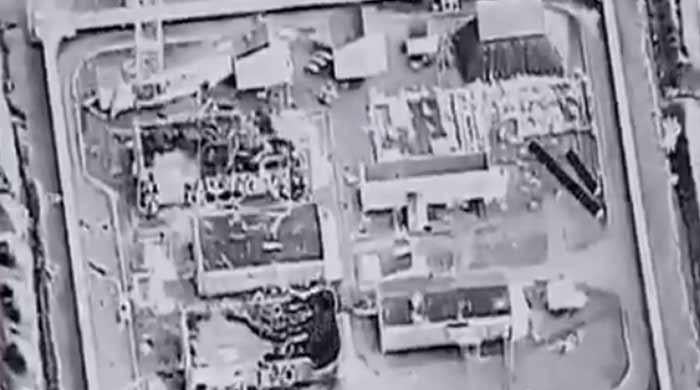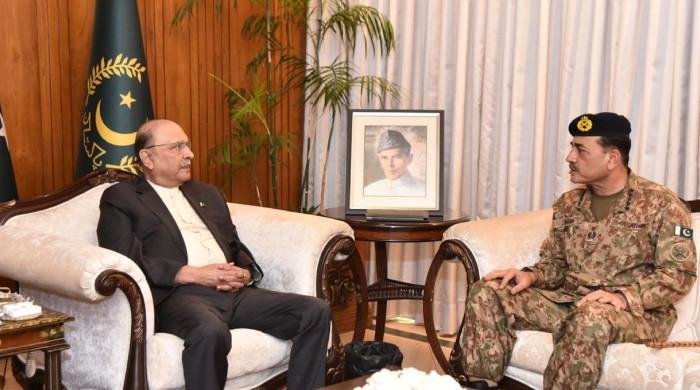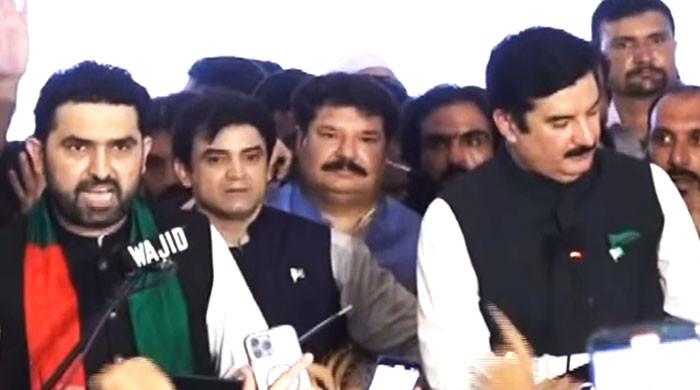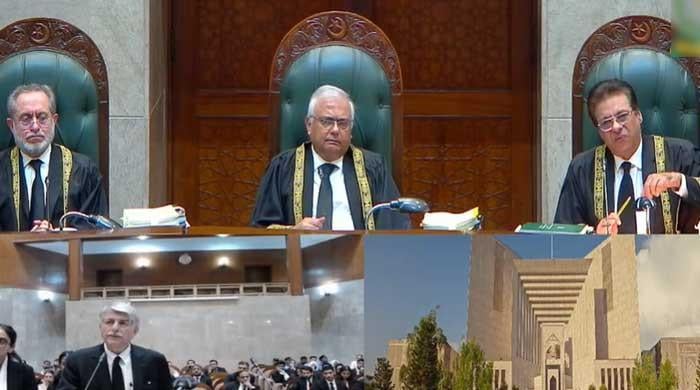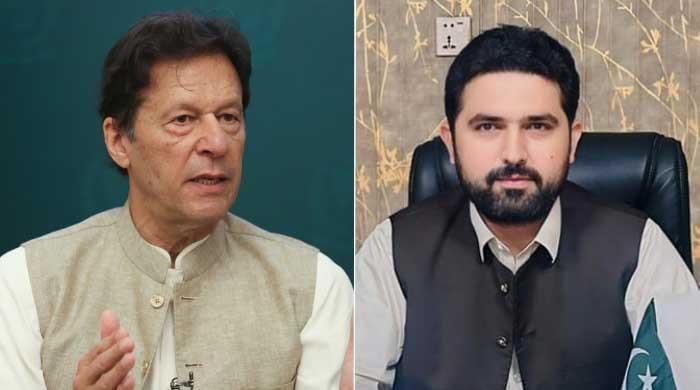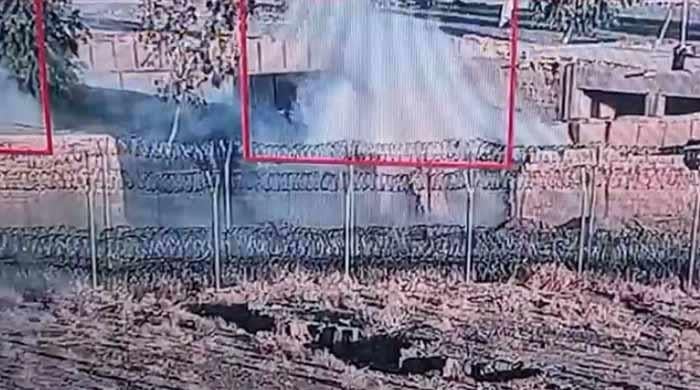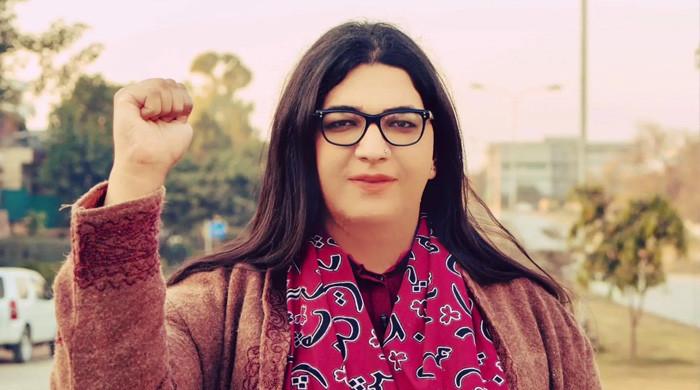PPP calls upon Centre to enforce 'pray at home' to prevent spike in virus cases
PPP said it was 'extremely concerned at the confusing agreement' between ulema and President Alvi that allowed mosques to stay open
April 22, 2020
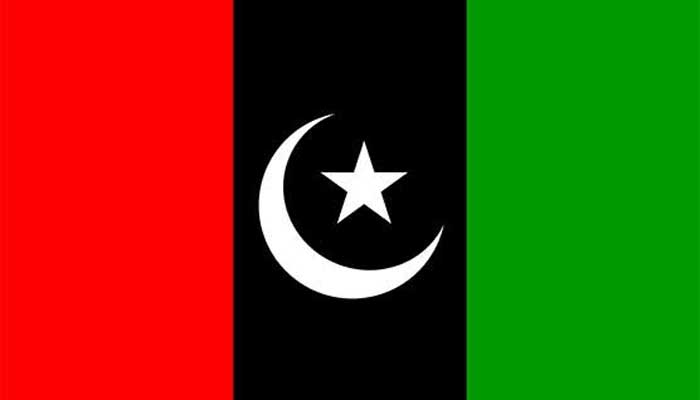
KARACHI: The PPP on Wednesday called upon the federal government to enforce a "pray at home" policy during the holy month of Ramazan to prevent an expected spike in the coronavirus cases.
In a statement shared on Twitter by PPP MNA Nafisa Shah, the party said it was "extremely concerned at the confusing agreement" between the religious scholars and President Dr Arif Alvi that allowed mosques to stay open during the holy month.
The MNA said the PPP's concerns were backed by health professional, who "have warned that this will most certainly lead to increase in the number of cases and in the number of deaths as well".
"PPP firmly believes that this decision has nothing to with religions and every thing to do with political expediency," the statement read. "Islam preaches protection and preservation of humanity and this decision is likely to put lives at risk at a time a highly contagious and life-threatening virus is threatening human life."
'Beyond any logic or understanding'
Terming the 20-point agreement between Alvi and the ulema, or religious scholars, as "extensive and complicated", the party said it was unlikely they would be adhered to. "There is no way the government has the means to regulate the Masajid [mosques]," it added.
The PPP also referred to other Islamic countries, which have banned all public gatherings and congregations, including religious ones, to prevent the spread of the COVID-19 pandemic. Prime Minister Imran Khan and Alvi "need to look no further than Saudi Arabia, which has cancelled Hajj, and which has asked Muslims to pray at home".
"For Muslims of the World Kaaba is the House of God, and the Qibla, direction of our prayer. When Baitullah is itself closed for prayer, opening mosques by this government is beyond any logic or understanding," it added.
The party also stressed that the PTI government had put at risk people's lives "through its mixed, double-minded, indecisive, wavering policies" on lockdowns and public gatherings.
"We strongly urge the government to follow all the Muslim countries through a strictly enforced pray at home policy during Ramazan and proactively engage the ulema to protect our country and our people from the pandemic," the PPP added.
'Running out of beds'
Earlier today, a group of Karachi's leading doctors in a press conference appealed to the government to enforce stricter coronavirus lockdown. Part of the Pakistan Medical Association (PMA), the medics painted a sobering picture of the ground realities faced by frontline workers in the fight against the pandemic.
They urged the government and religious leaders to continue abiding by recommended precautions instead of easing restrictions and warned a point would otherwise come when they would have to choose who to save.
"This is a medical problem which has its resulting economic and social effects. But we need to understand that this is nonetheless primarily a medical issue," Dr Saad Niaz. a gastroenterologist at the Dow University of Health Sciences, said.
'40% increase' in cases in five days
He said the number of cases shot from over 6,500 to almost 10,000 in five days, ending April 21. It "is a near 40% increase", he added, regretting the impression among Pakistanis that the coronavirus was not as serious an issue as in other countries.
"The reason for that is our testing capacity, which is an issue that will remain," he explained. "We have not even peaked yet. It's very important to bust all these myths."
"The wards are all already 80% saturated. And in Pakistan's case, there are more patients who are under 60 years of age," he added, mentioning further how more and more doctors are getting affected, with as many as 162 who had already fallen prey to the disease from Sindh.
"Experts think this will blow out of control over the next two to four weeks. Projected figures stand at 70,000 and if even 10% of those are serious cases, we don't even have the capacity to accommodate those. There are no ventilators.
"Our only option is to be aggressive with precautions. We don't have the skill or capacity to combat something of the scale it could reach," he added.




